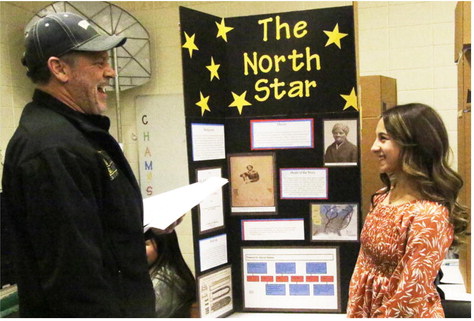Passenger Rail Bill Derails On Montana Senate Floor
The Big Sky Passenger Rail Authority will likely not see state funding from this session.
House Bill 848, which would have taken $2 million from the railroad car tax and directed it to the authority, failed 23-27 on second reading in the Senate. The tax brings in about $4 million annually and the money currently goes into the general fund.
“We are not deterred easily,” Big Sky Passenger Rail Authority chairman Dave Strohmaier said Wednesday after the floor vote. “In spite of what may seem a setback, we’re full steam ahead.”
The bill was carried by Rep. Denise Baum, D-Billings, who pushed for months to get movement on legislation. It found broad support from legislators in the House, as well as both the Senate and House transportation committees.
However, during its Senate transportation hearing, lobbyists representing large industry interests testified against the bill. Most of their issues were based around the railroad tax being used to fund the agency.
“I don’t think any of the opponents would probably be here today if it weren’t for the funding mechanism in this bill,” BNSF lobbyist Matt Jones said on April 9.
He added that new passenger rail should not interfere with existing freight rail and, “the freight industry and freight customers should not be expected to subsidize passenger service.” Montana Petroleum Association lobbyist Sonny Capece said it would contribute to congestion on the railway. He added it wasn’t a viable option.
“Let the private industry do it. If private industry can make this profitable, let them do it,” Capece said. “There’s plenty of private railroads nationwide that exist on a profit- making model. This one is not one of them.”
Dan Bucks, former Director of Revenue for Montana and a proponent of the bill, said the legislation wouldn’t have increased the tax. In fact, he said, he was familiar with the tax through his former position running the revenue department.
“It’s nearly impossible for the state to even contemplate increasing the rail car tax because of a federal law called the 4R Act that sets very tight standards for how the tax is levied,” Bucks said.
Funding the authority could be a boon for everyone, he added.
“We are not focused simply on passenger rail, but also on improving the freight system for its own sake, for agricultural ship rules, mineral shippers and anybody else shipping out of Montana or using the rails for freight,” Bucks said during a hearing on April 9. “We’re interested in improving the freight service and the passenger service together so that we reduce any delay.”
Two lines in Montana have already been picked as viable routes for increased passenger rail. Both proposed passenger rail routes going through Montana would be longer than 750 miles, meaning the federal government would be primarily responsible for running the route.
It would cost billions to get passenger rail routes fully operational, but proponents of the legislation said much of the money would come from the federal government. Congress, in fact, would likely have to approve any spending on passenger rail of that magnitude.
And even then, HB 848’s funding would have gone to figuring out where the major hurdles for passenger rail would be. It would also help them match and leverage federal funding to move the project forward.
“You have to have a steady or stable funding source to be able to unlock that match,” Baum said.
On the floor, the bill saw trouble immediately as Senators received a letter on their desk signed by lobbyists from the Treasure State Resource Association, the Montana Wood Products Association, the Montana Coal Council, the Montana Grain Growers Association, the Montana Agricultural Business Association, the Montana Petroleum Association, the Montana Grain Elevator Association, the Montana Mining Association, the Montana Farm Bureau Federation and the Montana Chamber of Commerce.
“Although HB 848 redirects receipts from an existing rail tax, it creates an unacceptable precedent where freight rail customers are subsidizing passenger rail initiatives,” according to the letter, which was distributed by Sen. Shelley Vance, R-Belgrade. “Whether intentional or not, it also creates a potential expectation that freight shippers will be expected to contribute additional revenue in the future.
“Passenger rail does not benefit freight rail customers. In fact, it has the potential to interfere with the existing service we rely on.”
On the floor, the legislation saw some support, while detractors, including Majority Leader Tom McGillvary, R-Billings, essentially said passenger rail expansion was a fever dream.
“This is the most absurd bill I have seen this session,” McGillvary said. “If you vote yes on this bill you’re living in a fantasy land.”
Following the failed vote, the bill was indefinitely postponed.
There was some frustration from rail supporters about how the discussion went.
“There was a lack of understanding about what we’ve accomplished in the last four years,” Strohmaier said.


